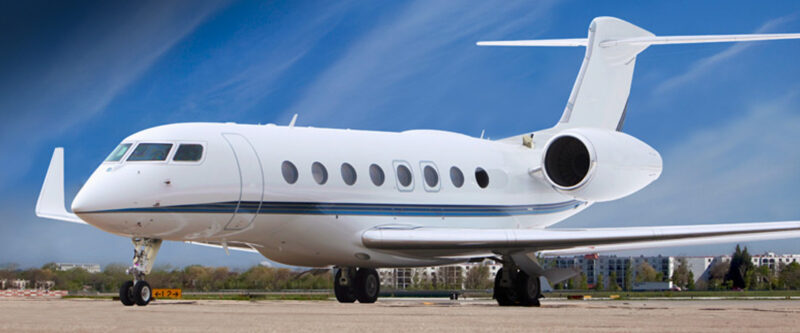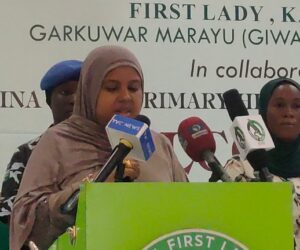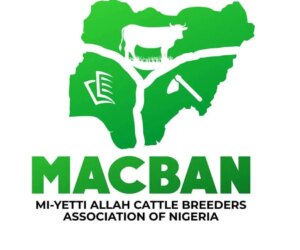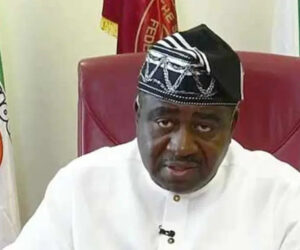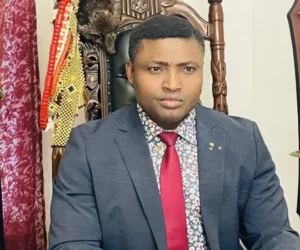1
…Experts Blame Political Interference, Judiciary
…Operators Ask Customs, NCAA To Align Positions
LAGOS – For years, Nigeria’s private charter aviation sector has been dogged by allegations of regulatory evasion, particularly in relation to foreign-registered aircraft brought into the country under Temporary Import Permit (TIP).
At the heart of the controversy lies a clash between two critical regulatory agencies, the Nigeria Customs Service (NCS), charged with collecting import duties, and the Nigerian Civil Aviation Authority (NCAA), mandated to regulate air operations. While Customs insists on strict adherence to duty payments under the Customs and Excise Management Act (CEMA), NCAA rules have provided operators with operational latitude. The resulting grey zone has become fertile ground for abuse, with operators exploiting loopholes to avoid compliance.
The Law On Temporary Importation
Section 12 of the Customs and Excise Management Act (CEMA) 2004 allows importers to bring goods into Nigeria under “temporary admission” provided that such goods are re-exported within a stipulated period or converted to “home use” with the applicable duty paid. The law specifies that the import duty becomes payable if the goods – in this case, an aircraft – remains in Nigeria beyond the agreed period.
For aircraft, Customs practice has typically allowed a maximum of 12 months temporary admission, extendable in six-month increments but not to exceed two years. Thereafter, the aircraft must either be exported or regularised for “home use” by payment of import duty.
Yet, in Nigeria’s aviation sector, this law has been bent repeatedly. Aircraft that should have been re-exported or regularised years ago have remained in the country, some since as far back as 2008, continuing to operate in the lucrative charter business without paying Customs duty.
The NCAA’s Position
On the other side of the divide, NCAA’s Civil Aviation Regulations (Nig.CARs 2015, Part 18, Section 18.3.4) authorises the operation of foreign-registered aircraft under certain conditions, provided they hold valid certificates of airworthiness and comply with NCAA’s operational oversight. For operators, this has been the legal cover to fly foreign-registered jets within Nigeria without necessarily addressing the Customs angle.
This divergence – Customs demanding import duty and NCAA permitting foreign-registered operations – has created a gap ripe for exploitation. Operators argue that they already pay NCAA charges, such as landing, parking, and air navigation fees, and therefore Customs’ demand amounts to “double taxation.”
Captain Roland Iyayi, CEO of TopBrass Aviation, offers a perspective that bridges both sides. Speaking to Daily Independent, he explained: “What an operator or an aircraft owner pays to the NCAA or other agencies are for services. What Customs is asking for is import duty. Just as when you import a car, you pay duty separately from roadworthiness or licence fees, the same applies to aircraft. Customs has the law on its side.”
Iyayi revealed that while some operators initially secured reprieve when their aircraft were sealed by Customs, not all have honoured their undertakings to regularise.
“The time allowed for temporary admission is two years. Most of the people you’re talking about have been in the country since 2008. They know what they’re playing at. Some even went to court to frustrate Customs, claiming ICAO conventions exempted them. But ICAO deals with commercial aviation, not private aviation. The courts found those arguments baseless.”
AC Abdullahi Maiwada, the National Public Relations Officer of NCS, clarified the agency’s stance: “If privately owned aircraft are imported on temporary admission, there is a stipulated period for them to remain in the country. Beyond that, they must either be re-exported or converted to home use, with duty paid. If you import your aircraft on temporary admission and after 90 days you return it, there’s no problem. But if you overstay, you must regularise. That is the law.”
Maiwada stressed that while Customs does not keep a precise public tally of overstayed aircraft, investigations are ongoing.
He described the issue as “a product of trying to find out the number of aircraft that have overstayed without regularisation.”
Group Captain John Ojikutu (rtd.), former commandant of Murtala Muhammed Airport, Lagos, said the issue is symptomatic of Nigeria’s weak regulatory alignment.
He pointed to glaring lapses: “If you bring in a foreign-registered aircraft that is operating in Nigeria, it’s like bringing in a foreign-registered vehicle you intend to keep here. You must re-register it or export it after a set period. What we see now, where foreign-registered jets have been flying locally for years without re-registration, is irregular and criminal.”
Ojikutu accused political influence of distorting the enforcement process: “These things were not happening before. Why are they happening now? If you bring in a foreign-registered aircraft and it is domiciled here without re-registration, it is illegal. The NCAA must come out clearly. For me, it is criminal for foreign-registered aircraft to keep flying local routes indefinitely.”
Customs’ Enforcement Actions
Customs has not always stood idly by. A timeline of enforcement efforts underscores the seriousness of the issue:
June 2024: NCS announced plans to ground about 60 foreign-registered jets over unpaid duties. Operators were summoned to Abuja for verification.
July 2024: The exercise expanded to over 80 aircraft, with demand notices issued.
August 2024: After high-level interventions, Customs relaxed the grounding but maintained duty demands.
June 2025: Customs reveals that 86 operators presented documents; 57 cleared, 29 liable for duty. Several others failed to show up.
Despite these moves, enforcement has been patchy, with political interference and prolonged negotiations slowing down decisive action.
Customs And NCAA: An Uneasy Overlap
At the centre of this saga lies an institutional clash. To Customs, an aircraft entering Nigeria is simply an imported good, subject to the rules of the Customs and Excise Management Act. Once it is used commercially in Nigeria, it ceases to be “temporary” in any meaningful sense and must be entered for home use with duty paid.
To the NCAA, the aircraft is primarily an operational matter. The NCAA issues Air Operator’s Certificates, Air Transport Licences and Permits for Non-Commercial Flights, and it alone decides who may carry passengers for hire or reward. From this perspective, so long as a foreign-registered aircraft holds the right NCAA permits, it may fly charter routes legally.
The divergence is clear. Customs insists on duties for commercial operations, while the NCAA insists it alone can regulate whether such operations are permissible. In between, operators have found fertile ground for manoeuvre.
“This is not about safety or operational approval alone,” said one aviation consultant. “It is about economic fairness. You cannot have local operators paying import duty in billions while others fly around indefinitely on temporary permits. That is not a level playing field.”
Exploiting The Grey Areas
Operators have become adept at exploiting the cracks between these two regimes. Some renew their TIPs again and again, effectively turning a temporary measure into a multi-year authorisation. Others declare aircraft for private or demonstration use while quietly running lucrative charters. A few lean on NCAA approvals to claim legitimacy even when their Customs paperwork is dubious.
Charter operators, however, defend themselves. One Lagos-based operator, who asked not to be named, argued: “It’s not that we don’t want to comply. But the process for full importation is unclear, the duties are extremely high, and the NCAA gives us approvals. Customs and NCAA need to align their positions. Right now, we are caught in the middle.”
The strategy is not just regulatory but political. High-net-worth owners often deploy lawyers and connections to delay or soften enforcement. Customs has at times been forced into negotiation or seen its seizures challenged in court, creating windows in which the aircraft continue to operate and generate income. For local charter operators who have imported aircraft properly, paid full duties and endured the bureaucracy of registration, the arrangement looks like unfair competition.
Counting The Cost
For the Federal Government, the financial cost is substantial. Aircraft are among the most highly valued imports, and Customs calculates duties and taxes at between 12 and 15 percent of the Cost, Insurance and Freight (CIF) value. On a $25 million jet, that could amount to more than $5 million – around N8 billion at current exchange rate. Multiply that across dozens of jets and the sums easily climb into tens of billions of naira.
Beyond revenue, there is the issue of regulatory integrity. If an aircraft can sit on the tarmac in Lagos or Abuja for years under a permit meant for temporary use, confidence in enforcement erodes. For passengers, there are also questions of safety and recourse. If a jet operating on the margins of legality is involved in an incident, untangling responsibility may prove more complicated than for a fully regularised Nigerian-registered aircraft.
Closing these loopholes will require more than sporadic crackdowns. Experts argue for closer coordination between Customs and NCAA. A memorandum of understanding could define the precise point at which an aircraft’s use moves from temporary to commercial, triggering duty obligations. A centralised register of TIP, accessible to both agencies, would improve transparency and prevent silent rollovers. Faster adjudication of disputes and proportionate sanctions would ensure that enforcement is both fair and effective.

